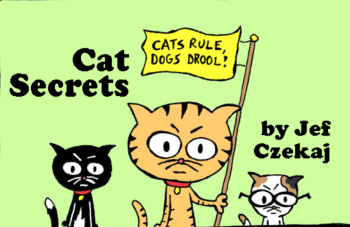Belmont author Len Abram interviewed Nathaniel Philbrick, whose book “The Battle of Bunker Hill. A Siege, A City, a Revolution,” is this year’s One Book One Belmont selection.
Abram: Revolution patriots appear heroic in a Copley painting. Others, however, beat, scalded, tarred and feathered, and nearly killed loyalist John Malcom. Some patriots dumped British tea into the harbor. To the English, were Americans thugs and savages, who only understood violence?
Philbrick: We have the impression that the American Revolution meant war, but not the climate of violence of so many other revolutions. Not true. In Boston, armed gangs fought each other in annual anti-papal demonstrations; in protesting the Stamp Act, crowds broke windows and damaged furniture at the home of Governor Hutchinson; the patriots of the Boston Tea Party destroyed thousands of pounds of English property. By the way, civil unrest and violence were taking place in England too.
Boston in the 1770s had a civil war, loyalist against patriot. John Malcom was a loyalist, tarred and feathered and terrorized. He eventually left for England. His brother Daniel, however, was considered a true Son of Liberty, and is buried at Copp’s Hill. It is said that British regulars practiced their muskets with Daniel’s tombstone as a target.
Q. Liberty is the epic theme of your history. One Lexington veteran said his militia fought to keep British regulars from taking away their freedom. Where did Americans, even Boston children sledding in winter, get this sense of autonomy ?
A. Children were sledding down School Street by the home of a British officer. They complained to the officer that throwing fireplace ash onto their path slowed down their run. The officer mentioned the apparent rudeness to General Gage. Subduing this colony was so difficult, Gage observed, because “even their children insist on their rights.”
The pursuit of liberty was not just the passion of high-minded political theorists, but shared by the general populace, including children, and those farmers with their muskets who rushed toward battle.
Q. Your vivid description of the fighting in 1775 carries with it sorrow, the grievous costs, culminating in the battle at Bunker Hill. Could the two sides have avoided bloodshed for the same political results?
A. If both sides knew that an eight-year struggle of such high costs in blood and treasure was ahead, they would have reconsidered. It is tragic that they found no other way to settle their disputes. Not all the patriots were in favor of independence, while some English, even in the military, were sympathetic to the American cause. Against the French, the English and the colonists had once been allies.
Both sides, however, were entrenched. The British felt they had already backed down enough with repealing the Stamp Act. It was time to punish the colony, which acted like bullies, into submission. Once the colonists had declared independence, it was too late. The Battle of Bunker Hill and the war did have lessons for the British to learn. They did. In the next century, Britain would keep Canada, and acquire one of the largest empires in history.
Q. Colonial marksmen could hit targets at 200 yards, you note, impressive for smooth bore muskets. The American sharpshooter – Natty Bumppo and Sergeant York are examples — is legendary. Why do you think Americans were good at it? Does this skill suggest anything about American national character?
A. Americans have a relationship with the wilderness and the sea, almost spiritual, in which handling violence is at the core of American experience. Every farmer had a gun and knew how to use it for hunting and protection. Like the whalers from Nantucket, Americans wrested a bounty from nature through skills in using tools, such as musket and lance.
No doubt, marksmanship from ordinary citizens helped devastate British professional soldiers taking the heights at Bunker Hill. When Americans moved westward, they brought those skills, which helped them conquer a continent.
Q. George Washington praised the poetry of Phyllis Wheatley, the African-American woman slave freed by a Boston family. Other blacks fought and died under his command. Yet Washington and Jefferson owned slaves. Did excluding blacks from liberty undercut the American Revolution?
A. When the monument for the Battle of Bunker Hill was commemorated in 1843, John Quincy Adams complained that the work of the American Revolution was not complete, not until the emancipation of slaves in America.
Washington and Jefferson saw the inconsistency of proclaiming freedom for their citizens, but excluding blacks. If American patriots of 1776 or 1787 had settled the slavery issue, it could have avoided war in 1861.
Q. Henry Ford knew how to build automobiles, but considered history bunk, useless. Are there lessons from the Battle of Bunker Hill that apply to our times?
A. The Battle of Bunker Hill may teach us how messy and difficult life is. The people we meet in 1775 are full of petty jealousies, concerns, flaws and failings. Joseph Warren, a physician, volunteered to face the British regulars at Bunker Hill and was killed. Henry Knox, a bookseller, brought cannon 300 miles to force the British to evacuate. In many ways , they were ordinary men, but they were moved to join in a great historical event, a milestone of human development.
The patriots of 1775 are not unlike who we are today. We Americans are not done yet with our Revolution. We keep trying, to realize its ideals and our purpose.
